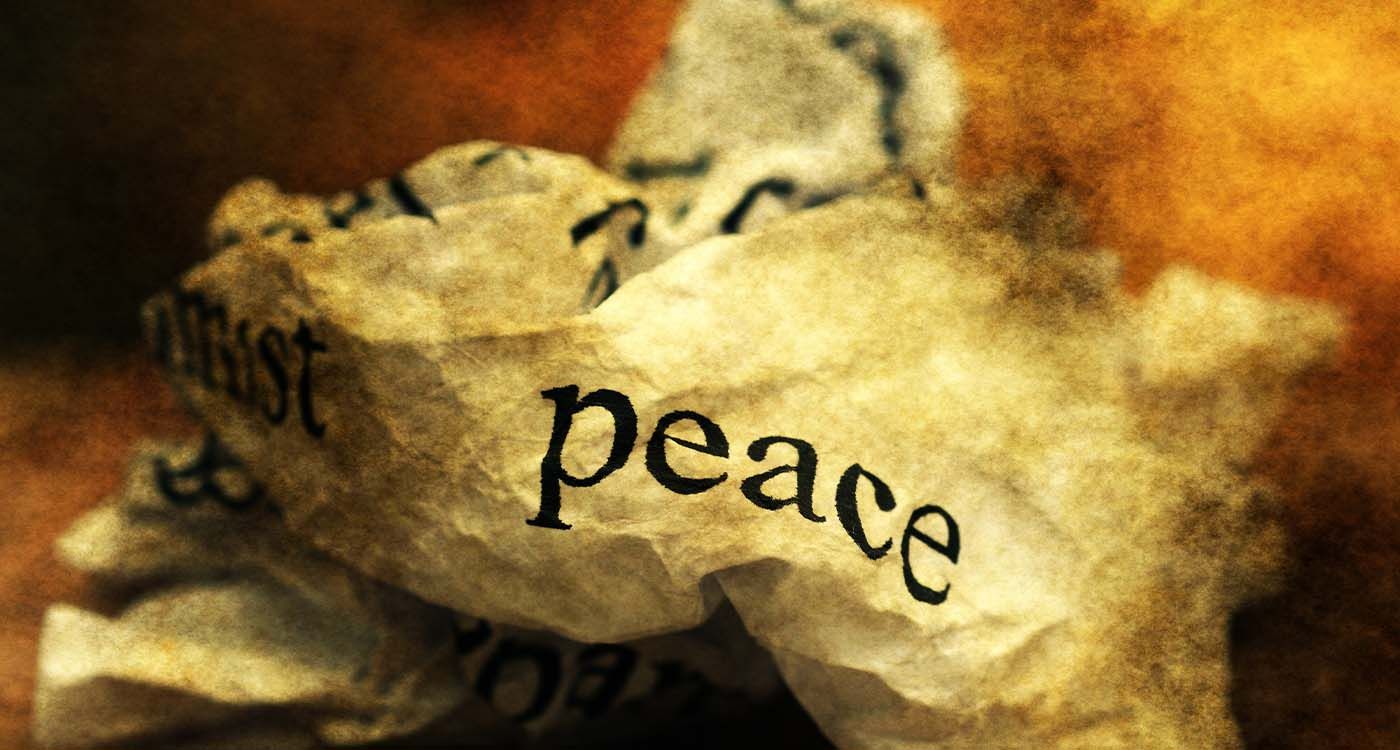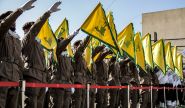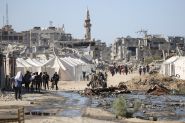- Home
- Middle East
- The Diplomatic Feat and Its Imponderables

©Shutterstock
President Trump has proven to be a tough dealmaker and a skillful negotiator who knows how to leverage whatever resources are at hand to promote and sustain peace processes against all odds. His diplomatic approach is based on the common sense of a businessman turned politician at the helm of an “imperial republic.” His hard-nosed realism betrays a genuine concern for peace and addressing humanitarian tragedies caused by harsh political conflicts and their moral callousness. Undoubtedly, peacemaking is part of his projected political legacy.
His recent political undertakings have dwarfed the opportunistic and clumsy political proposal led by Emmanuel Macron and the cohort of Western leaders who proved to be novices and incapable political actors who lacked political acumen, political leverage and moral probity, since they defaulted all along in their political intermediation without renouncing the faked moral high ground that they falsely claimed. So is the United Nations, whose compounded moral and political failures undermined what’s left of its credibility. Otherwise, the cohort of third-world dictatorships and the variants of international leftism are not reliable partners to be enlisted in peace endeavors. As a matter of fact, they are part of the problem and not the solution.
The astute strategy based on decoupling the war ending in Gaza from the overall settlement of the Israeli-Palestinian conflict has proven effective and aptly prepares the ground for an all-encompassing political solution. The well-established credentials of President Trump since the finalization of the Abraham Accords are inevitably framing the ongoing diplomatic process. This well-coordinated and timely approached diplomacy tallies with the weariness of both Israelis and Palestinians, who were eager to finish off with their respective dramas.
Otherwise, it’s noteworthy to mention that Israel’s military force accounts for the corollary diplomatic breakthrough, which decisively inflected the political dynamics. Hamas, after two years of unleashed nihilistic violence, has come to the end of its fallacy. The nihilistic war and its ideological overtones have discredited the whole militant Palestinian narrative and its political scripts: no peace, no negotiation, no recognition. This whole ideological blindness has served all its handlers: Arab and Muslim power politics, leftist doxas, neo-totalitarian power brokers and Islamist terrorism, which instrumentalized Palestinian militancy all along.
The Palestinians must end their ideological rants, confront their strategic dilemmas from a realpolitik perspective and reject both their enduring political immaturity and the manipulation of their political agenda by Islamists. If a new awareness emerges and political juvenility subsides, we must permanently shelve Palestinian militancy and its worn-out playbooks. The different diplomatic sequences should be completed for the new horizon to rise and give way to a new dynamic of peace: the liberation of Israeli hostages, the demilitarization of Gaza and the dismissal of Hamas, the formation of a consensual government, the national security parameters, the Palestinian prisoners' dilemmas and the reconstruction plans.
The diplomatic breakthrough in Gaza should pave the way for a complementary phase, the demilitarization of Hezbollah, the rehabilitation of Lebanese statehood and the onset of peace negotiations between Israel and Lebanon. The strategic interrelationship between Lebanon and Gaza brings us back to the inaugural scene, the Iranian imperial strategy, the destruction of its operational platforms by Israel and its attempt at reinvesting the regional dynamics with unequal fortunes. Iran is the ultimate obstacle to the politics of normalization and to the ongoing conflict resolution dynamics.
The 7th of October, 2023, episode epitomizes the whole strategic plot attempted by Iran, which relentlessly reclaims its doomed military strategy and its defeated political outcomes. The military options are not yet closed in Lebanon, in spite of the incoming openings in Gaza. The unraveling of the strategic plot has not yet dissuaded Hezbollah and its Iranian operators and invited them to disengage from the military and political doldrums. Iran is still hedging its bets.
This state of interrelatedness should not be overlooked in the ongoing diplomatic endeavors, since it may be instrumental once again to the Iranians to foil the peace dynamics. The Iranian regime, be it for internal or international considerations, struggles to adjust to the ideas of normalization and liberalization since it questions its viability and its foundational narrative. Therefore, the war option shouldn’t be set aside if we are to safeguard the peace dynamics and their innovative political approaches, which resolutely break away from the grim narratives of failed Arab and Islamic modernity.
The incidences of the late diplomatic evolutions have been welcomed across the geopolitical and ideological divides. The eventual sabotaging of peacemaking efforts, be it domestically or internationally, is of no interest to the various contenders. The Gazans are eager to finish off with the cascading horrors visiting them throughout the last two years and wean off radical Islamism and its devastating consequences.
In counterpart, the hostage crisis has invited a critical retrospection all across the political and ideological spectrum in Israel, whereby Israelis are invited to reexamine their critical national security concerns. They have to decide over the future of their statehood and its incidence on their national security and geopolitical dilemmas and the transformative effects of the Israeli geostrategic achievements. Israeli political messianic movements should be brought into sync with the rest of the national community.
The yearning for peace and the urgency of sustainable political solutions are of paramount importance across the national and political divides, and diplomacy has to seize the upsurging momentum.
Read more




Comments